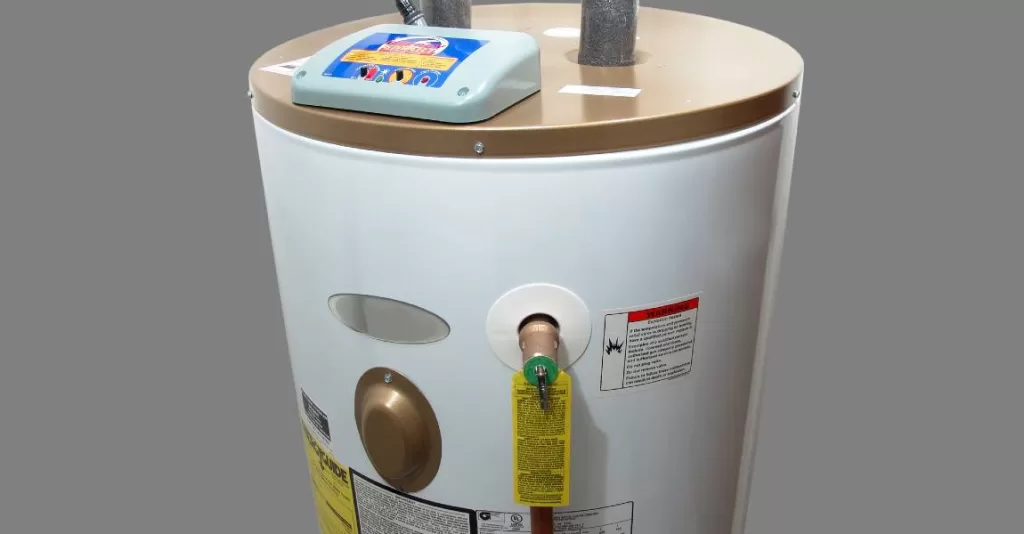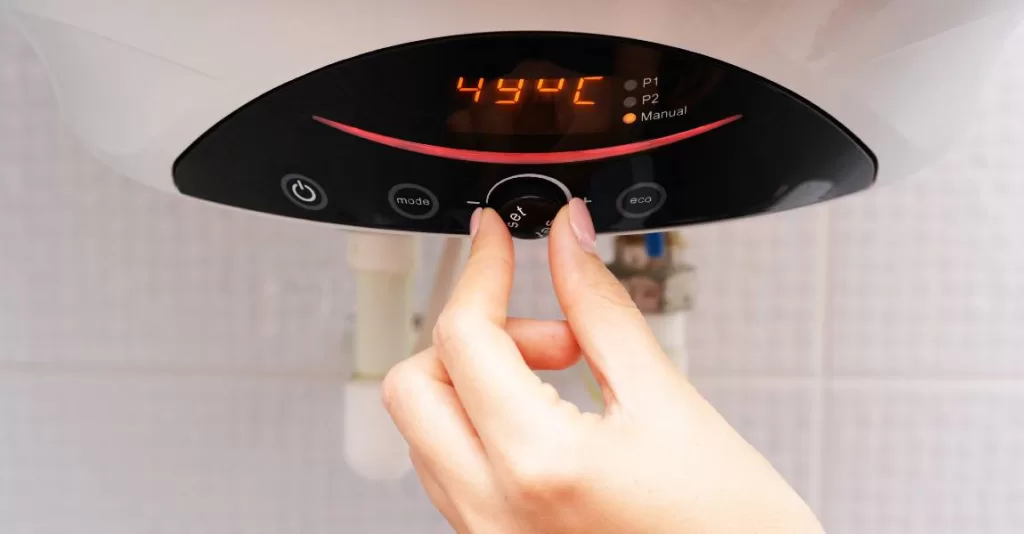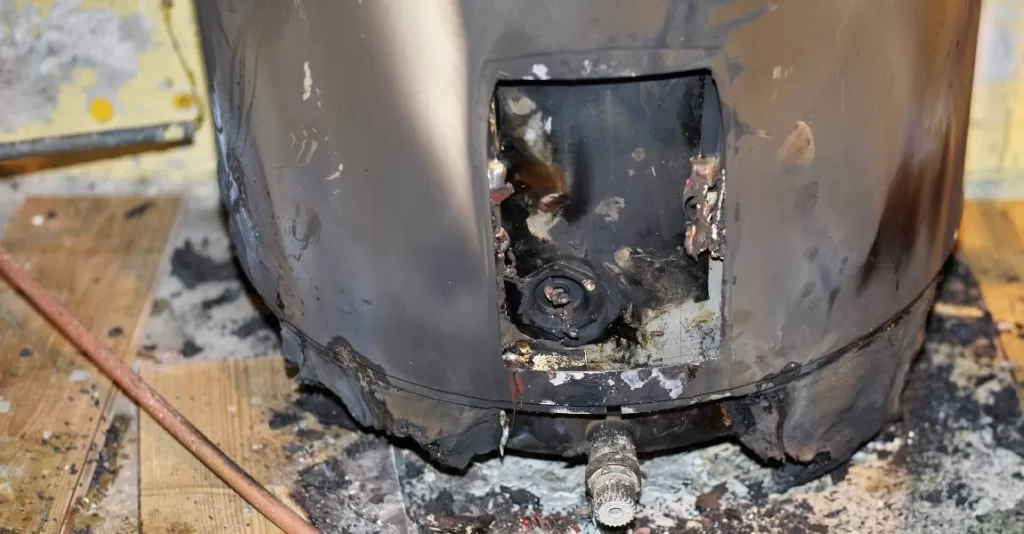How to Troubleshoot a Hot Water Heater: A few things in life are as jarring as turning on the shower, anticipating a cascade of warmth, only to be met with an icy blast that sends you scrambling for cover. If you’ve ever experienced the frustration of a water heater that refuses to do its job, fear not. In this comprehensive guide, we’ll dive deep into the murky waters of hot water heater troubleshooting, arming you with the knowledge and skills needed to restore the cozy comfort of a hot shower to your life.

Table of Contents
Understanding the Basics: How Does a Hot Water Heater Work?
Before we embark on our journey, let’s take a moment to demystify the inner workings of a water heater.
How Does a Hot Water Heater Work? A water heater is a relatively simple appliance designed to heat and store water for domestic use. Most residential water heaters rely on either gas or electricity to heat the water contained within a tank, which is then dispensed through pipes to faucets, showers, and appliances throughout your home.
Hot Water Heater Problems and How to Fix Them
To better understand how to diagnose and fix a common problem with a water heater that isn’t heating, it’s essential to grasp the system’s primary components. These typically include:
- Hot Water Tank: electric heater Where the water is heated and stored.
- The Heating Element: A gas burner or electric heating element raises the water temperature.
- Thermostat: Regulates the temperature of the water within the tank.
- Dip Tube: Delivers cold water to the bottom of the tank for heating.
- Pressure Relief Valve: Releases excess pressure to prevent tank damage.
- Anode Rod: Helps prevent corrosion within the tank.
Step 1: Check the Power to The Heater Source
When faced with a water heater that’s gone cold, the first step is to determine whether the issue lies with the power source. For electric water heaters, this means checking the circuit breaker to ensure it hasn’t tripped. If everything appears to be in order, it’s time to inspect the heating element itself for signs of damage or malfunction.
Pro Tip: Regularly check and reset the high-temperature limit the high-temperature limit on your electric heater to avoid water temperature issues. Don’t forget to shut off the power to your water heater before attempting any repairs to avoid the risk of electrical shock.

Step 2: Assess the Thermostat Settings
If your water heater is powered by electricity and the circuit breaker is functioning correctly, the next culprit to consider is the thermostat. The thermostat controls the water temperature within the tank and may need to be adjusted if set too low or too high. Additionally, sediment buildup around the thermostat can interfere with its operation, causing erratic heating or no heat.
Did You Know? Residue buildup is common in water heaters, particularly in areas with hard water. Over time, minerals such as calcium and magnesium can accumulate at the bottom of the tank, insulating the element and reducing its efficiency.
Step 3: Inspect the Heating Element
For electric water heaters, a faulty heating element is a common cause of the lack of hot water. To determine whether this is the case, visually inspect the heating elements for signs of corrosion or damage. A multimeter can also be used to test the continuity of the heating element, providing valuable insight into its functionality.
Pro Tip: If you discover that the heating element is the culprit, replacement is often the most cost-effective solution. Fortunately, heating elements are inexpensive and can typically be replaced with essential tools and DIY know-how.
Step 4: Flush Out Sediment Buildup
As mentioned, sediment buildup within the water heater tank can wreak havoc on its performance. If you notice a significant decrease in water temperature or hear rumbling noises from your water heater, residue buildup is likely to blame. Flushing the tank to remove sludge can help restore proper heating and prolong the lifespan of your water heater.
DIY Hack: To flush your water heater, attach a garden hose to the drain valve at the base of the tank and direct the other end to a floor drain or outdoor location. Open the valve and allow the water to drain completely, flushing out any accumulated sediment in the process.
A survey conducted by Consumer Reports found that approximately 75% of water heater failures are due to a slow buildup of sludge and mineral deposits within the tank. This highlights the importance of regular maintenance and flushing to prevent costly repairs and premature replacements.
Step 5: Consider the Anode Rod
The sacrificial anode rod prevents corrosion within the water heater tank by attracting harmful minerals and corrosion-causing agents. Over time, however, it can become depleted, leaving the tank vulnerable to corrosion and reducing its heating efficiency. If all other diagnosis methods fail to resolve your water heater woes, inspecting and replacing the rod may be time to see if your water heater needs more serious repairs.
Fun Fact: The concept of sacrificial anode rods dates back to the early 20th century when scientists discovered that certain metals could protect ship hulls from corrosion by sacrificing themselves to galvanic corrosion.

How to Know When You Need a Professional Water Heater Repair
Is the water heater not working? One of the most common water heater problems homeowners face is when the water heater is not working properly.
If you notice that your hot water is not coming out or the water is not hot enough, you may need to contact a professional for a new electric hot water heater repair.
Another common reason a water heater stops working is a pilot light that keeps going out. In this case, you may need to use a reset button or reset the circuit to get the water heater to work correctly again. If you have an electric hot water heater, electric water heater, turn off the power before attempting any repairs to avoid any high-voltage mishaps.
For those with a gas water heater, be cautious of any potential gas leak causing the water in the tank to heat up.
If you notice that the water is too hot, so you may need to reset the high-temperature limit to make the water heater work properly. You may need to reset the heater’s high-temperature limit.
If you are not getting enough hot water from your hot water faucet, there could be a problem with the gas valve that needs to be replaced, or see if your water heater needs resetting.
Don’t ignore any issues with your water heater, as they could lead to more severe problems.
Routine hot water heater maintenance is essential for optimizing the performance and longevity of your heater, as well as ensuring the safety and quality of your hot water supply.
How to Choose The Best Energy-Efficient Water Heater
How to Choose the best energy-efficient water heater entails a careful consideration of various factors to optimize energy consumption and minimize utility costs.
- Assessing the type of water heater—be it conventional tank, tankless, or hybrid—is crucial, as each has distinct energy efficiency profiles. Tankless heaters, for instance, heat water on demand, reducing standby energy losses inherent in tank-based systems.
- Examining the Energy Factor (EF) rating provides insight into a heater’s efficiency; higher EF ratings indicate lower energy consumption.
- Prioritizing models equipped with advanced features like programmable settings, efficient insulation, and heat pump technology can further enhance energy efficiency.
- Selecting a water heater that aligns with household needs and environmental considerations ensures both economic savings and reduced energy consumption, contributing positively to sustainability efforts.
From Chill to Thrill: Mastering the Art of Troubleshooting Your Water Heater That Doesn’t Heat
In conclusion, a water heater without heat can throw a serious wrench into your daily routine. However, armed with the knowledge and diagnosis tips outlined in this guide, you can confidently tackle even the most stubborn water heater woes.
Whether checking the power source, adjusting the thermostat, or flushing out sediment buildup, there’s a solution for every chilly conundrum. So, the next time you face a cold shower, remember to stay calm, informed, and warm.
Frequently Asked Questions About Water Heater Problems
How Do I Know if My Water Heater is a Gas or an Electric Water Heater?
The easiest way to determine whether your water heater is gas or electric is to check the type of fuel it uses. If there is a gas supply line leading to the water heater, it’s likely gas-powered. Conversely, if electrical wires are connected to the unit, it’s an electric water heater.
What Should I Do if I Smell Gas Near My Water Heater?
If you detect the odor of gas near your water heater, it’s essential to take immediate action to ensure your safety. First, turn off the gas supply valve to the water heater and any nearby appliances. Next, ventilate the area by opening windows and doors and refrain from using electrical devices or creating sparks. Finally, contact your gas utility provider or a qualified technician to do an inspection address any potential leaks, and ensure it continues to work correctly.
Can I Repair My Water Heater, or Should I Call a Professional Plumber?
While some water heater issues can be safely and effectively resolved through DIY repair, others may require the expertise of a licensed professional. Factors such as the complexity of the problem, your level of experience with plumbing and electrical systems, and safety considerations should all be considered when deciding whether to tackle repairs yourself or enlist the help of a professional.
How Often Should I Flush The Hot Water Heater Tank?
Flush the tank at least once per year to maintain optimal performance and prolong your water heater’s lifespan. However, households with hard water or older water heaters may benefit from more frequent flushing to prevent excessive sediment buildup and ensure their systems work correctly. Consult your water heater manufacturer’s guidelines, or consider hiring a professional plumber to perform routine maintenance as needed.
Why is My Water Heater Making Strange Noises?
Unusual noises from your water heater, such as rumbling, hissing, popping, or banging sounds, often indicate sediment buildup within the tank. As water is heated, minerals and debris settle in the tank, creating a layer of sediment that interferes with heating efficiency and can cause disruptive noises. Flushing the tank to remove sediment can help alleviate these issues and restore peace to your water heater.
What Should I Do if My Water Heater is Leaking?
A leaking water heater can indicate various potential issues, ranging from minor leaks due to loose connections or faulty valves to more severe problems such as corrosion or tank failure. If you notice water pooling around your water heater, it’s crucial to act quickly to prevent water damage and potential safety hazards, hinting that the water heater might fail to work correctly. Turn off the water supply to the heater, shut off power to the unit, and contact a qualified plumber or water heater technician to assess the situation and recommend appropriate repairs to get it to work correctly again.
How Long Does a Water Heater Typically Last?
The lifespan of a new water heater can vary depending on factors such as the type of water heater, quality of installation, water quality, and maintenance practices. On average, gas water heaters last around 8 to 12 years, while electric water heaters may last slightly longer, ranging from 10 to 15 years, with proper care and maintenance.
Regular maintenance, such as flushing the tank, inspecting and replacing sacrificial anode rods, and addressing minor issues promptly, can help extend the lifespan of your water heater and ensure optimal performance for years to come.
The National Association of Home Builders (NAHB) reports that the average lifespan of a traditional tank-style water heater is between 10 to 15 years, while tankless water heaters can last up to 20 years or more with proper maintenance.
Schedule a professional check-up today to ensure optimal performance and avoid costly repairs in the future. Contact our experts now to schedule your appointment and enjoy a comfortable, energy-efficient hot water heater.





